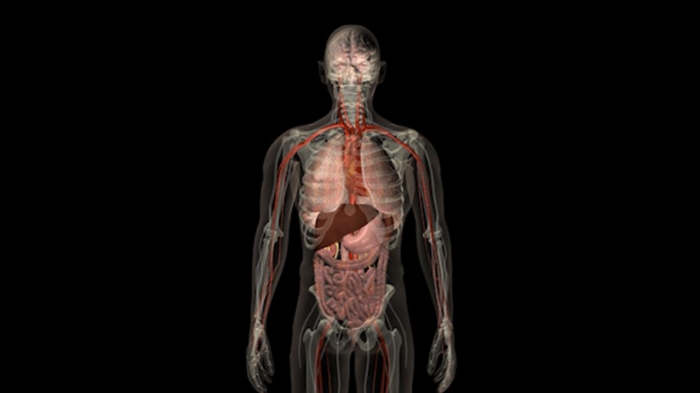3. The root cause of eczema has finally been identified. Scientists have tracked down a series of proteins and molecular pathways that lead to this insufferable skin problem, revealing that the protein filaggrin isn't the sole culprit we thought it was.
4. We were wrong - the testes are connected to the immune system after all. Researchers have discovered a "very small door" that allows the testes to send one-way signals to the immune system, and it could explain why some men struggle with infertility, and why certain cancer vaccines keep failing.
5. The causes of hair loss and greying are linked, and for the first time, scientists have identified the cells responsible.
6. A brand new human organ has been classified. Researchers have given the nod to the mesentery - an organ that's been hiding in plain sight in our digestive system this whole time. But that's only half the story, because we're still not sure exactly what it does.
7. An unexpected new lung function has been found. Researchers have found that lungs don't just facilitate respiration - they also play a key role in blood production, with the ability to produce more than 10 million platelets (tiny blood cells) per hour.
That equates to the majority of platelets in circulation at any given moment.
8. Your appendix might not be a useless evolutionary byproduct after all. Unlike your wisdom teeth, your appendix might actually be serving an important biological function - and one that our species isn't ready to give up just yet.
9. The brain literally starts eating itself when it doesn't get enough sleep. Chronic sleep deprivation causes the 'clearing' process that usually happens when we sleep to kick into hyperdrive, prompting the brain to clear a huge amount of neurons and synaptic connections away.
10. Neuroscientists have discovered a whole new role for the brain's cerebellum.
It's long been assumed that the cerebellum functions largely outside the realm of conscious awareness, coordinating basic physical activities like standing and breathing, but it could actually play a key role in shaping human behaviour.
11. Our gut bacteria are messing with us in ways we could never have imagined.
New research has revealed that neurodegenerative diseases like Parkinson's might actually start out in the gut, rather than the brain, and there's mounting evidence that the human microbiome could be to blame for chronic fatigue syndrome.
With gut bacteria showing signs of controlling our appetite, changing our brain structure, and triggering brain lesions that could lead to strokes, our tiny passengers are a force to be reckoned with.
More about: #HumanBody
















































